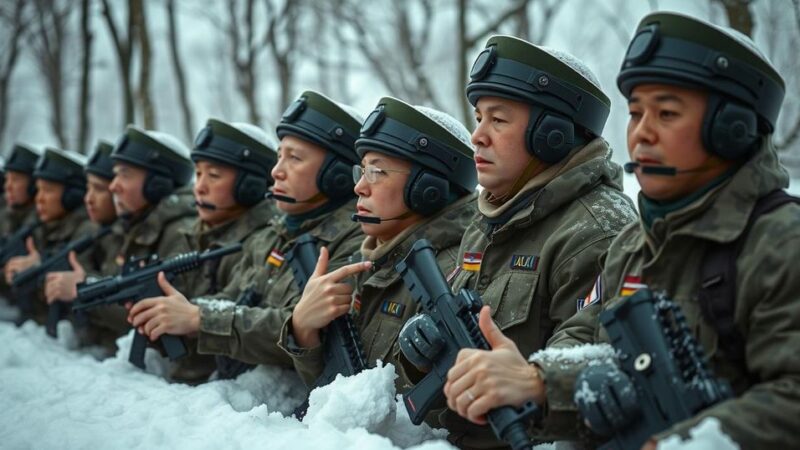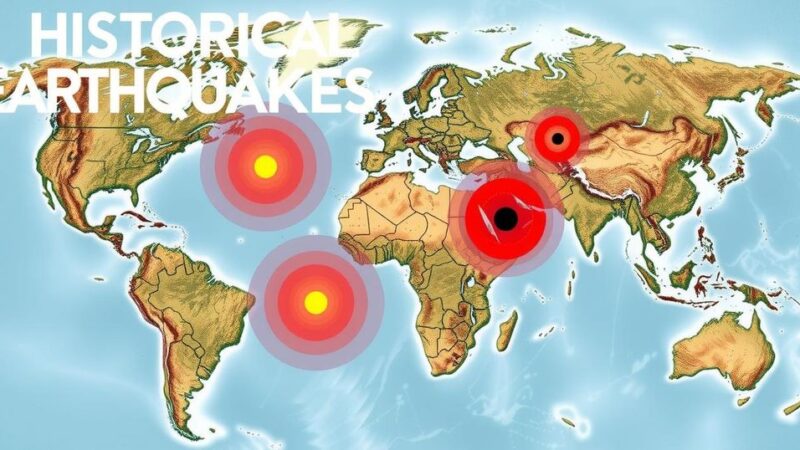The recent changes in Syria following Bashar al-Assad’s fall have incited reflections among Yemenis regarding the future of the Iran-aligned Houthis in their country. Some Yemenis express hope that the Houthis may face a similar outcome as the previous Syrian regime, while others warn of the dangers of renewed violence. The situation is complicated by deep societal divisions and the urgent need for a stable resolution to Yemen’s ongoing humanitarian crisis.
The recent fall of Syrian President Bashar al-Assad has prompted a significant shift in perspectives among Yemenis, sparking discussions regarding the potential future of the Houthi movement in Yemen. While some view al-Assad’s defeat as a setback for Iran and its allies, anti-Houthi factions perceive it as a pivotal opportunity to challenge Houthi dominance in Yemen. The ongoing political landscape remains fraught with uncertainty, as divisions within Yemen’s society continue to shape reactions to the developments in Syria.
Mansour Saleh, a young historian in Sanaa, reflects the varied sentiments experienced among his peers regarding the implications of al-Assad’s fall. Some friends express relief at the demise of the Syrian regime, while others lament the loss, highlighting the deep divisions within Yemeni society. The notion that the Houthis could experience a similar fate as al-Assad elicits hope among anti-Houthi citizens, who see an opportunity for liberation from what they consider tyranny. However, Houthi supporters are cognizant of the need to maintain resistance, identifying the fall of al-Assad as a personal loss due to the consequent weakening of the Iran-aligned axis.
Since their armed takeover of Sanaa in 2014 and subsequent elimination of the internationally recognized government, the Houthis have steadfastly maintained control over significant territories in Yemen, leading to continuous military conflict. Currently, a tenuous ceasefire persists, but the specter of resumed violence looms, particularly as the regional dynamics shift. Opinions diverge sharply; pro-Houthi individuals like Abdulrahman Ali express fears of renewed conflict, while opponents of the Houthis celebrate al-Assad’s downfall as a potential signal of change.
The Houthis have consistently demonstrated military prowess, amassing significant resources and support within regions they control. Opponents, however, argue that a collective effort among Yemen’s government and its allies could facilitate the Houthis’ downfall. Some Yemenis view the fall of al-Assad as a warning about the complexities involved in overthrowing entrenched leaders without ensuring a stable transition. They contend that without a comprehensive resolution, Yemen risks repeating Syria’s violent and chaotic narrative.
The humanitarian crisis in Yemen remains dire, with millions in urgent need of assistance as the conflict drags into its tenth year. Both the World Health Organization and various independent reports have documented the extensive toll of the fighting, emphasizing the urgent requirement for a resolution that prioritizes the welfare of civilians above political interests. The landscape in Yemen is marked by cumulative losses and unyielding strife, calling for focused efforts to avoid exacerbating the suffering of the Yemeni people.
In December 2022, the fall of Syrian President Bashar al-Assad prompted various reactions amongst Yemenis, particularly in relation to the Iran-aligned Houthi movement that continues to exert significant influence in Yemen. The historical context of the Middle Eastern geopolitical landscape illustrates the connections between Syria, Iran, and the Houthis, which remain central to understanding this issue. The conflict in Yemen has persisted since 2014, leading to severe humanitarian consequences, and the military capabilities of the Houthis have established them as formidable players. The reflections of Yemenis highlight the polarized opinions regarding the implications of developments in Syria on Yemen’s future.
The fall of Bashar al-Assad in Syria acts as both a precipitating factor and a cautionary tale in the evolving narrative of Yemen. Yemenis are split in their interpretations of this event, with many expressing hope for a possible shift in the balance of power against the Houthis, while others foresee the dangers of potential violence and instability. The situation accentuates the ongoing need for a concerted effort towards finding a sustainable resolution to Yemen’s prolonged conflict, amidst a humanitarian crisis that has devastated countless lives within its borders. The prospect of renewed violence underscores the precariousness of peace in Yemen and emphasizes the importance of international engagement and support.
Original Source: www.aljazeera.com







